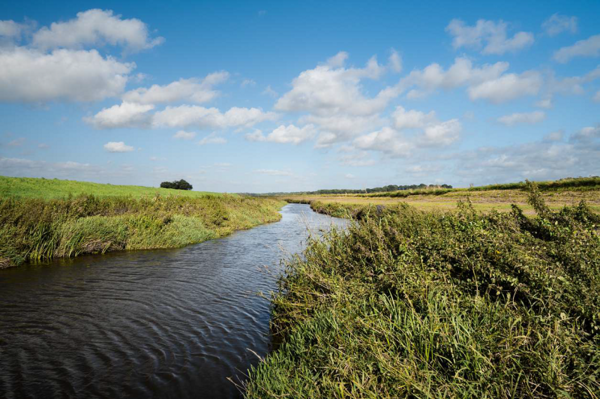Alberta Invests in Natural Drought and Flood Protection

Alberta’s government is investing $3.5 million to help make the province more naturally drought resilient, to prevent floods and improve water quality.
Watersheds are areas of land that drain rainfall and melted snow into streams, rivers and lakes. Healthy and resilient watersheds play an important role in preventing drought, reducing the risk of floods and supporting healthy communities and ecosystems.
This year, Alberta’s government is providing $3.5 million to fund eight projects in communities across the province through the Watershed Resiliency and Restoration Program. These projects will help restore riverbanks and watersheds, stabilize stream banks and improve natural drainage, supporting communities affected by recent droughts and floods.
“It has never been more important to improve the resiliency of Alberta's watersheds. By working with local communities and partners, we are helping mitigate the impact of future floods and droughts in communities across the province while creating healthier water bodies for future generations.”
Rebecca Schulz, Minister of Environment and Protected Areas
Each year, communities and local partners receive project funding through the Watershed Resiliency and Restoration Program to increase the natural ability of Alberta’s watersheds to reduce the intensity, magnitude, duration and effects from flooding and droughts.
Projects receiving funding are led by stewardship organizations, non-profits, Indigenous communities and municipalities to restore critical wetland and riparian areas while promoting the ongoing stewardship and preservation of critical watersheds.
“This vital grant will boost community resilience across the Oldman watershed at a critical time when southwest Alberta is facing extreme drought conditions. It will allow us to restore the essential natural infrastructure that reduces drought impacts for those being affected the most – agricultural producers, First Nations and municipalities.”
Shannon Frank, executive director, Oldman Watershed Council
“This grant is terrific news. It enables us to provide direct support to our municipal partners and participating acreage owners, who, through their collective and collaborative efforts, will have a real impact on drought and flood mitigation, as well as enhancing biodiversity and ecosystem services, and supporting watershed resiliency provincewide.”
Brian Ilnicki, executive director, Land Stewardship Centre of Canada
"This grant is fantastic news. With increasing drought prevalence and climatic pressures, these funds will help us to promote and implement best management practices to ensure the long-term sustainability and viability of our watershed."
Alyssa Krawchuk, executive director, Lakeland Agricultural Research Association
"Being a river valley community, this grant is great news. This funding will help support continued watershed restoration work along the banks of the North Saskatchewan River through bioengineering to reduce the amount of exposed slopes that are vulnerable to flooding and erosion."
Jeff Craddock, mayor, Town of Devon
"ALUS is grateful to the Government of Alberta for their support through the Watershed Resiliency and Restoration Program. This generous funding breathes life into our project, Tributaries to Resiliency: Farm-level Action and Community Connection. Through this project, agricultural producers are building ecological and economic resilience by adding natural infrastructure to the landscape and undertaking community engagement. With ALUS, Alberta’s farmers and ranchers are enhancing water quality, mitigating the effects of drought, flood and extreme heat and supporting biodiversity. Their efforts are contributing to a resilient and prosperous future for all Albertans."
Christine Campbell, senior western hub manager, ALUS
"Delta Waterfowl applauds the approach of funding local communities, empowering them to restore wetlands and the many benefits they provide. These grants will enable farmers and ranchers to help make the land more resilient, especially in dry times, providing long-term benefits for farm communities and society at large."
Jim Fisher, vice president of Canadian policy, Delta Waterfowl
To date, Alberta’s government has allocated more than $46.5 million to flood and drought resilience projects through the Watershed Resiliency and Restoration Program. Since 2014, this funding has supported the restoration, enhancement and conservation of 5,475 hectares of wetlands and riparian areas and 320 kilometres of streambank.
More information on the newly funded projects and how to apply for future funding is available online.
Quick facts
- Priority watersheds were identified based on indicators of watershed resilience, such as their high risk and consequence for flood and drought across the province.
- More than 11,000 Albertans have participated in training workshops funded through this program on natural restoration techniques and other practices that enhance watershed resiliency.
- The next application deadline for Watershed Resiliency and Restoration Program funding is Sept. 15.
Related information
- Watershed Resiliency and Restoration Program
- Watershed Resiliency and Restoration Program: grant approval fact sheet
Media inquiries
Ryan Fournier
780-232-2213
Press Secretary, Environment and Protected Areas


Leave a comment